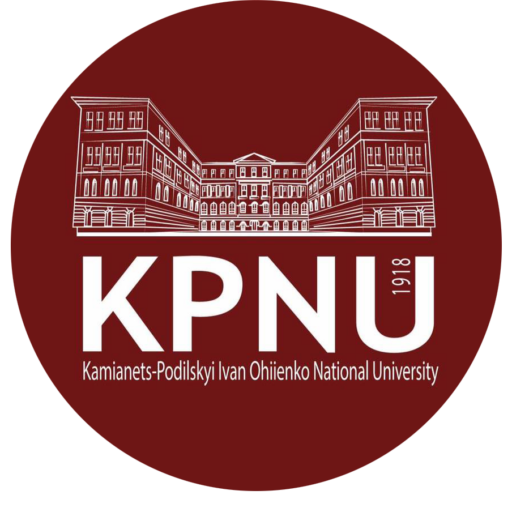Antonina Mosiichuk, Oksana Kozachyshyna
(Vinnytsia Mykhailo Kotsiubynskyi State Pedagogical University)
SYNTACTIC STUDIES OF POETRY AT THE INTERSECTION OF FORMAL AND COGNITIVE POETICS
Cognitive poetic studies are gaining in popularity due to the effective methodological tools allowing to reveal the cognitive mechanisms of text and discourse formation, processing, and interpretation [1; 6]. However, not many scientists currently working within the cognitive paradigm realize that both terminologically and methodologically cognitive poetic research is grounded in formal poetics [2; 4; 5], where the key concepts and procedures of cognitive poetic analysis were first introduced. This paper will highlight the basic vectors of formal studies of poetic syntax and try to show that they laid the foundations for present-day cognitive poetic syntactic inquiries.
The appearance of formal poetics can be traced to the works of the representatives of Russian formalism O. Brik [2], Yu. Tynyanov [4], and V. Shklovskiy [5]. Despite the already existing achievements of ancient and structural poetics, the formal school offered its own interpretation of a literary text form and literary devices. One of the pivots of formal poetics was the distinction between two types of speech: poetic and prose speech (in later terminology, practical or daily speech). Unlike prose, which was defined as ordinary, correct, and economical speech, poetry was perceived by the formalists as “speech-buildingʺ, which is largely characterized by various violations and distortions [ibid., p. 24].
The formalists attributed the specific character of poetic speech to its form, whose ʺperceptibilityʺ arises due to the literary devices of a poetry text. They distinguished two most important literary devices: ʺestrangementʺ (the author’s unusual, “strange” view of the reality that can be realized through various violations of language norm) and ʺcomplicated formʺ [ibid., p. 15], which was mainly connected with syntactic experiments. Hence, the interpretation of a literary work required a long-term dialogue with the text on the reader’s part. In this regard, the unusual syntactic form, which deautomates and dynamizes the poetry text [4, p. 31-32] making it seem somewhat strange to the reader, was seen as a key to such a dialogue. Whereas on the lexical level of a poetry text deautomation was realized by using the so-called ʺobscure languageʺ (special author’s expressive means, which are often meaningless), on the syntactic plane, it was associated with the device of a complicated form. Thus, violations in the word order, intentionally complicated structure, and repetition of syntactic units were defined as the basis for creating a complicated form. Notably, the formalists distinguished several techniques, which they considered instrumental in producing syntactic complexity. There belonged parallelism, comparison, symmetry, and coupling, i.e. the appearance of similar parts in the syntactic chain [5, p. 34-36].
Recognizing that poetry is regulated by two groups of laws – the laws of prose syntax and the specific laws of rhythmic syntax – the formalists distinguished one more rhythmic-syntactic unit, the poetry line, that they viewed as an element, with which the analysis of the syntactic level of poetry texts should begin [2, p. 12]. In this regard, the ability of verse lines and stanzas to interact with syntactic constructions was defined as the rhythmic-syntactic movement, a central principle of poetic organization, which generated poetic dynamization [ibid., p. 66-67] and deautomation of a poetry text perception. The most frequent devices contributing to this process were enjambment (fr. Enjambement from enjamber – transcend), or a breakdown of the syntactic sequence between lines or stanzas, and the reverse process of the convergence of the verse lines and syntactic structures [ibid., p. 67-68]. Thus, from the standpoint of formal poetics, a literary device was named the main syntactic unit of poetry texts, which can be realized either in separate sentences or encompass the text as a whole.
With the emergence of cognitive poetics at the end of the 20th century [1; 6], the concepts of a complicated form, estrangement, and deautomation entered the cognitive poetic studies of syntax in a slightly modified form. Unlike the formalists, who were limited to the analysis of poetry texts’ form, cognitive poetologists focused on the so-called “perceived effect”, present at the stage of the reader’s contact with the literary work – interpretation and artistic evaluation [3, p. 3; 6]. Hence, they incorporated the cognitive processes involved in the formation and processing of literary texts in their methodology.
Following the formalists, cognitive poetologists recognized the complexity of the formal organization of poetry, emphasizing that its perception causes violation or delay of cognitive processes [ibid.]. Notably, the concept of deautomation was borrowed by cognitive poetics as a keystone on which poetry analysis was further built and developed. In their turn, syntactic constructions were distinguished as the main means of deautomating the reader’s attention in perceiving the poetry form.
In conclusion, the study has revealed several points of intersection between formal and cognitive poetics, in particular, it has emphasized that the notions of estrangement, complicated form, and deautomation, which were introduced in formal poetics, are currently employed by cognitive poetologists in their analysis of poetry and literary texts enabling them to access the processes of the reader’s conceptualization in text interpretation.
REFERENCES
- Бєлєхова Л.І. Словесний образ в американській поезії: лінгвокогнітивний погляд: монографія. Москва: ООО “Звездопад”, 2004. 376 с.
- Брик О.М. Ритм и синтаксис. URL: http://literra.websib.ru/volsky/text_article.htm?111.
- Стрільчук А.В. Синтаксична організація текстів сучасної американської поезії: когнітивно-семіотичний та синергетичний аспекти: дис. …канд.філол.наук: 10.02.04 Київ, 2009. 258 с.
- Тынянов Ю. Н. Проблема стихотворного языка. Москва: Советский писатель, 1965. 302 с.
- Шкловский В. Искусство как приём. О теории прозы. Москва: “Советский писатель”, 1983. С. 9–25.
- Tsur R. Aspects of Cognitive Poetics. URL: http://www.tau.ac.il/%7Etsurxx/2Cognitive_Poetics.html.
